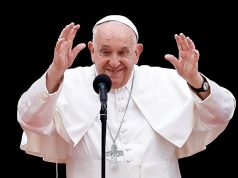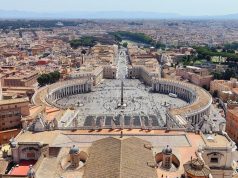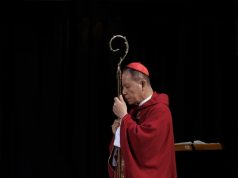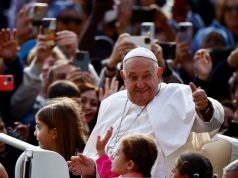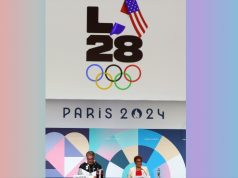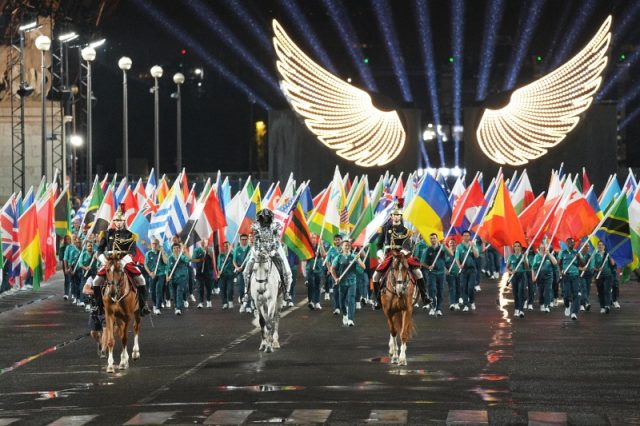
PARIS — Paris 2024 organizers apologized on Sunday to Catholics and other Christian groups angered by a kitsch tableau in the Olympic Games opening ceremony that appeared to parody Leonardo da Vinci’s “The Last Supper” painting.
READ: Olympics: Paris ceremony ‘Last Supper’ parody sparks controversy
The segment, which resembled the biblical scene of Jesus Christ and his apostles sharing a last meal before crucifixion and featured drag queens, a transgender model and a naked singer made up as the Greek god of wine Dionysus, drew dismay from the Catholic Church and the religious right in America.
“Clearly there was never an intention to show disrespect to any religious group. (The opening ceremony) tried to celebrate community tolerance,” Paris 2024 spokesperson Anne Descamps told a press conference.
“We believe this ambition was achieved. If people have taken any offence we are really sorry.”
The International Olympic Committee said it took note of Paris 2024’s clarification.
Thomas Jolly, the artistic director behind the flamboyant opening ceremony, said the scene had not been inspired by “The Last Supper” and depicted a pagan feast linked to the gods of Olympus.
“You will never find in my work a desire to denigrate anyone or anything,” Jolly told broadcaster BFMTV.
Catholic heritage
France, while proud of its rich Catholic heritage, also has a long tradition of both secularism and anti-clericalism. Blasphemy is not only legal, but also considered by many as an essential pillar of freedom of speech.
Hugo Bardin, whose drag queen character Paloma took part in the tableau, was disappointed Paris 2024 had felt compelled to apologize.
“An apology means recognizing a mistake, recognizing that you deliberately did something to harm, which was not the case,” Bardin said.
“What bothers people isn’t that we’re reproducing this painting,” Bardin continued, “what bothers people is that queer people are reproducing it.”
Supporters of the tableau praised its message of inclusivity and tolerance.
However, the Catholic church in France said it deplored a ceremony that “included scenes of derision and mockery of Christianity”.
Archbishop Charles Scicluna, the highest ranking Catholic official in Malta and an official for the Vatican’s powerful doctrinal office, said he had contacted France’s ambassador to Malta to complain about the “gratuitous insult”.
In a message to the ambassador shared on X he wrote: “I would like to express my distress and great disappointment at the insult to us Christians during the opening ceremony … when a group of drag artists parodied the Last Supper of Jesus.”
Some commentators said the controversy was another example of 21st century culture wars turbocharged by a 24-hour news cycle and social media.
Jolly said on Saturday religious subversion had never been his intention.
“We wanted to talk about diversity. Diversity means being together. We wanted to include everyone, as simple as that,” he told reporters on Saturday.
—Reporting by Karolos Grohmann and Julien Pretot; Additional reporting by Thomas Escritt in Berlin and Elizabeth Pineau and Michel Rose in Paris; Writing by Richard Lough; Editing by Ken Ferris, Pritha Sarkar and Alison Williams




